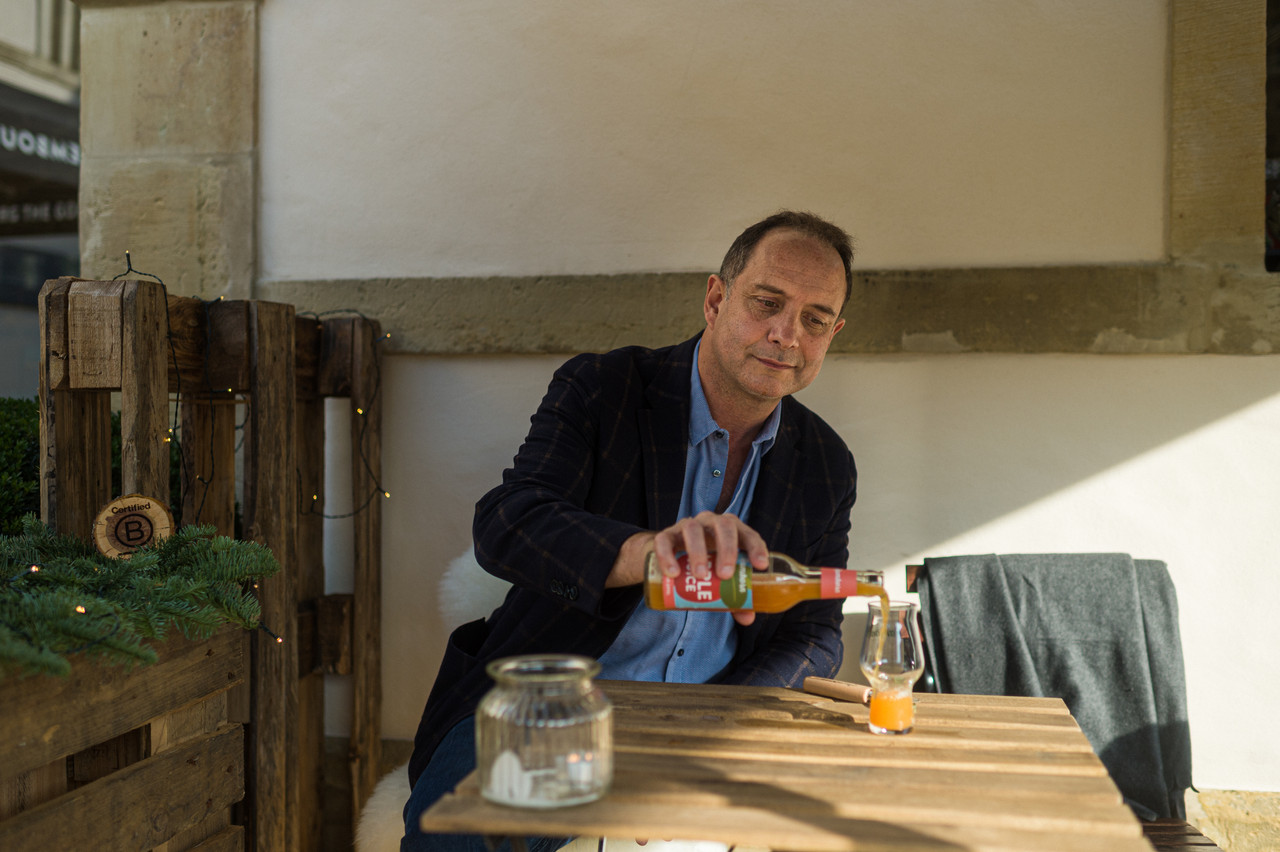The new products include an apple juice, pear juice, apple & quince juice, as well as an apple soda (also known as an “Apfelschorle”).
“Customers were asking for it,” says founder and CEO Carlo Hein. And, since the company has already been working with more than 100 farmers and estimates it has helped save over 730,000kg of food waste in local orchards, “the fruit is there, so it was quite easy to put this in place”.
Since its start in 2015, Ramborn has revived over 950,000m2 of biodiverse habitat and estimates having reduced CO2 by 31,000 kg. With the circular economy already in its DNA, this summer they also were the first Luxembourg brand to receive the B Corp certification, joining in the ranks of companies like Ben & Jerry’s, Patagonia and Goodwings. Through the certification, it will be reassessed every three years to allow for benchmarking so Ramborn can determine where it’s leading, where additional improvements could be made. But ultimately the certification helps companies improve their social and environmental impact.
“If we want to look at having a bigger impact on the orchards, we want to include as many people as possible in what we’re doing,” Ramborn’s president of products & marketing, Adie Kaye, says. “And part of that is making sure we have something for more age groups.”

The four new Ramborn juices Photo: Ramborn
Of course, some adults will also appreciate the alcohol-free options, but Kaye adds there are also environmental impacts to offering the juices.
“When we did the B Corp certification we did a life cycle of our emissions, and one of the big surprises was how big a negative impact fermentation itself has,” Kaye adds. (Sugar is transformed into alcohol and CO2 through the fermentation process.)
The juices will initially be available at its Born farmhouse and via Letzhop.lu, but also at some select bars and restaurants. Why the exclusivity? “The idea is to support that part of industry at the moment that has been hit very hard,” Kaye says.
Adopt-a-tree programme
By end-November, Ramborn also plans to launch its first adopt-a-tree programme, which allows individuals to adopt trees, ranging from newly planted to those that are several hundred years old.
“We want to connect more with our customers and involve them in the work we are doing,” Hein states. “People are asking also to have an impact on this world, and they can help us to do so.”
After adopting a tree--the annual price of which will hover around €60, depending on the tree category--individuals can check out where their tree is on a map and go online to see photos and a factsheet which, Kaye adds, will include “how many m2 they are protecting of biodiversity, how many kg of CO2 they are removing from the atmosphere, and how many kg of food waste they are also saving by investing in that scheme”.
The programme simultaneously serves as a sort of membership club as well, so adopters can learn of limited batches or special discounts.
The juices and adopt-a-tree programme were both launched as a result of the company earning the B Corp certification, and Hein urges other companies to look into it.
“Look at every product, service you are delivering to the world, and look at your positive and negative impacts,” Hein says. “I think there are always ways to do it better. We are doing that all the time.”
